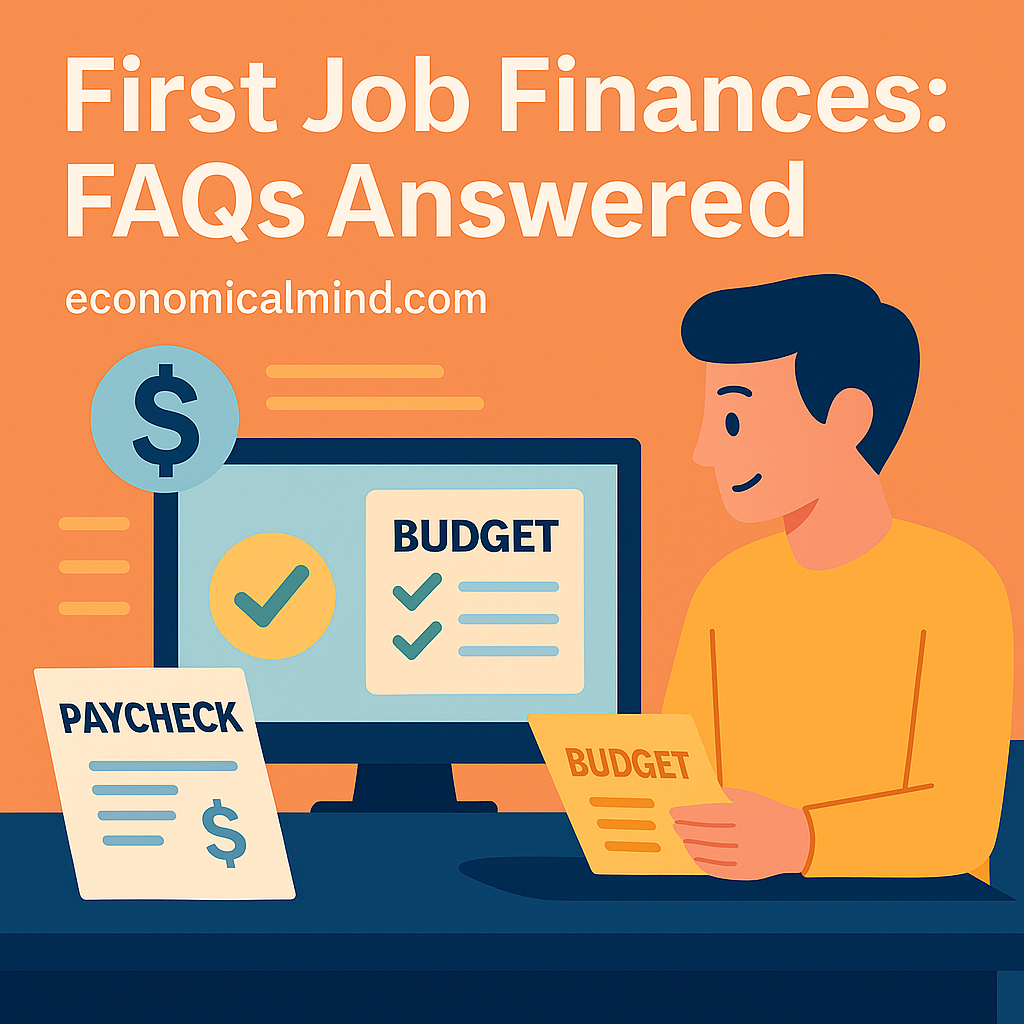
Starting your first job is exciting—it’s your first real paycheck, your first taste of independence, and your first chance to start building long-term financial habits. But it can also be confusing. How do you handle taxes, benefits, savings, and budgeting when everything’s new?
This guide breaks down the most common questions about managing your money when you’re just starting your career.
How Should I Handle My First Paycheck?
When that first paycheck hits your account, it’s tempting to celebrate—but it’s important to understand what you’re looking at. Your gross pay is what you earn before taxes and deductions. Your net pay—what’s actually deposited—is what’s left after:
- Federal and state income taxes
- Social Security and Medicare (FICA)
- Health insurance or 401(k) contributions if selected
Check your pay stub to see where your money goes. It’s your first step toward financial awareness.
What’s the Best Way to Budget My Income?
A simple rule for beginners is the 50/30/20 method:
- 50% for needs (rent, bills, groceries)
- 30% for wants (eating out, entertainment)
- 20% for savings and debt repayment
If your income fluctuates or you have high student loan payments, adjust those ratios. Budgeting apps like Mint, You Need a Budget (YNAB), or Empower can help you track spending automatically.
Should I Start Saving for Retirement Right Away?
Yes—the earlier you start, the better. Even small contributions in your 20s can grow dramatically through compound interest.
If your employer offers a 401(k) match, contribute at least enough to get the full match—it’s essentially free money. If not, open an IRA (Individual Retirement Account) to start saving on your own.
How Much Should I Save for Emergencies?
Aim for 3 to 6 months of living expenses in an emergency fund. Start small if needed—$500 or $1,000 can still make a big difference when something unexpected happens.
Use a high-yield savings account to earn interest while keeping your funds easily accessible.
How Do I Manage Debt Responsibly?
Many people start their first job with student loans or credit card balances.
Here’s how to manage both wisely:
- Make at least minimum payments on time—your credit score depends on it.
- Pay extra toward high-interest debt first.
- Avoid lifestyle inflation (spending more just because you’re earning more).
Apps like Undebt.it or Tally can help you organize and prioritize payments.
What Employee Benefits Should I Take Advantage Of?
Your first job may come with perks that can boost your finances if used wisely:
- Health insurance: Choose a plan that matches your needs and budget.
- Retirement savings plan: Enroll as soon as you’re eligible.
- Health Savings Account (HSA) or Flexible Spending Account (FSA): These accounts help cover medical costs with pre-tax money.
- Tuition reimbursement or professional development programs: Take advantage if available—they can boost your career value.
How Do I Build Credit the Right Way?
Start with a secured credit card or a starter card and use it for small recurring expenses. Pay off the balance in full every month.
Building credit early helps you qualify for better loans, apartments, and even jobs later on. Keep your credit utilization below 30% and always pay on time.
What Tools or Apps Can Help Me Stay on Track?
Here are a few beginner-friendly options:
- Budgeting: Mint, YNAB, EveryDollar
- Saving and investing: Acorns, Fidelity Spire, or Betterment
- Credit monitoring: Credit Karma or Experian
- Financial education: Khan Academy or Investopedia
Using these tools helps automate your progress and prevent mistakes.
Bottom Line
Your first job is more than just a paycheck—it’s your launch pad for financial independence. By budgeting smartly, saving early, and using your benefits, you’ll build a foundation that sets you up for lifelong financial success.
